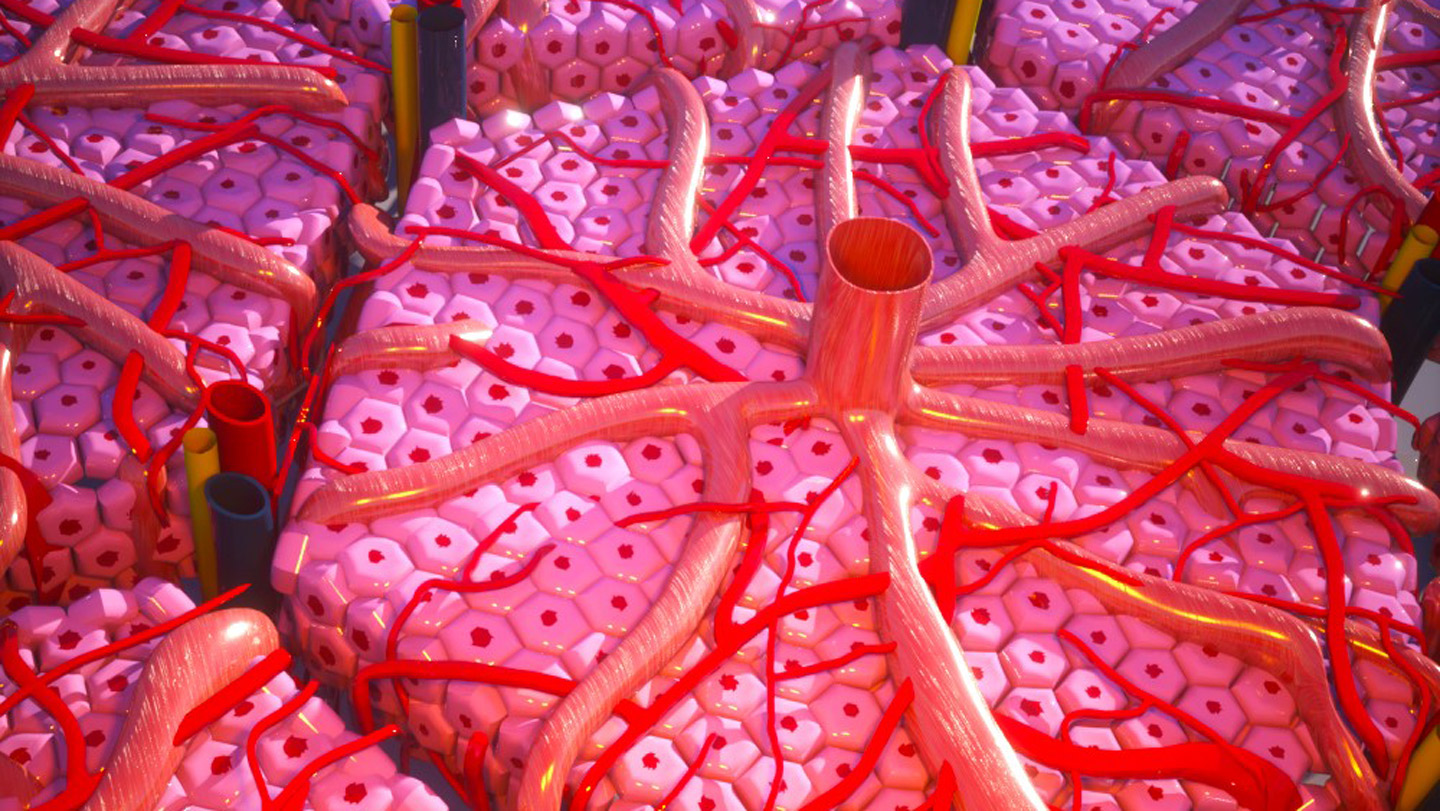The liver is a crucial organ for systemic metabolism in our body. Apart from the turnover of biomolecules and drug metabolism, the liver’s main function is the removal of toxic substances from the organism. Hepatocytes, or liver cells, are the most abundant cell type and functional unit of the liver. They are metabolic powerhouses in the healthy organism, but they also serve as important immune signaling platforms during infections. As such, they have the potential to react to a range of cytokines – small molecules that are essential for the coordination of immune responses.
Previous studies in the field of immunology and metabolism, or immunometabolism, unveiled groundbreaking mechanisms about how cells of the immune system need to adjust their metabolism to perform their functions to fight pathogens and cancer. Building on this, Andreas Bergthaler and his group at CeMM – Research Center for Molecular Medicine of the Austrian Academy of Sciences (OeAW) aimed to study the immunometabolic changes that occur in the whole organism during infection. They particularly focused on the liver due to its important role in controlling systemic metabolism.
Repressed metabolic pathways
The international study, which involved in Austria also researchers from the Medical University of Vienna and the University of Veterinary Medicine in Vienna, was designed as an integrative unbiased approach to investigate the molecular changes in the liver during chronic infection. Next to expected inflammatory changes, the authors identified intriguing changes in hepatocyte metabolism. Many central metabolic pathways, among them the urea cycle, were found to be repressed upon infection. The urea cycle is essential to remove toxic ammonia from the body to prevent brain damage.
Surprisingly, the researchers identified the antiviral cytokine signaling pathway of type I interferons (IFN-I) as a regulator of the urea cycle. This resulted in altered blood concentrations of the amino acids arginine and ornithine. “A key experiment for us was that when we removed the receptor for IFN-I on the surface of hepatocytes, we didn’t see these metabolic changes anymore”, says Alexander Lercher, first author of the study and PhD student in the laboratory Andreas Bergthaler, Principal Investigator at OeAW’s CeMM. The systemic changes of arginine and ornithine were found to inhibit antiviral CD8 T cell responses and to reduce liver damage. T cells are the body’s own immune celles.
Central role of the liver for the immune system revealed
One of the most important revelations of this study was the identification of IFN-I signaling as a master regulator for the repression of metabolic processes in hepatocytes upon infection. “We were really surprised that an antiviral molecule affects such vital biological processes as the urea cycle during infection”, says Michael Trauner, co-author of the study and head of the Department of Gastroenterology and Hepatology at the Medical University of Vienna. Together, these findings shed new light on how the body’s immune system evolved to regulate liver metabolism that modulate CD8 T cell responses and reduce collateral tissue damage during infection.
Andreas Bergthaler: “We regard this study an important contribution to the field of systemic immunometabolism. It also highlights the central role of the liver for our immune system and how organs of the body communicate through metabolites.” In the future, such findings may be exploited to therapeutically intervene with the regulation of metabolic processes to modulate CD8 T cell responses in diverse diseases such as infection, cancer and autoimmunity.

